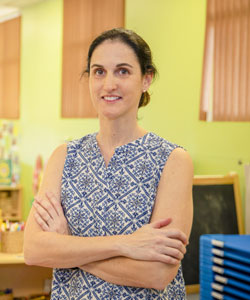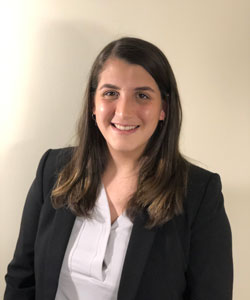The existing state-mandated assessments for Florida's voluntary prekindergarten program only measure academic skills when evaluating whether a child is ready for kindergarten. Rebecca Bulotsky Shearer, a psychology professor at the University of Miami College of Arts and Sciences, believes that in order to evaluate a child's overall readiness, assessments should also account for other factors impacting development, such as social, emotional, and behavioral skills.

As the research director of the Miami-Dade IDEAS Consortium for Children, which is housed in the Department of Psychology, Shearer is working with a team of researchers and service providers to improve early childhood outcomes in Miami-Dade County by developing holistic measurement tools.
IDEAS, which stands for Integrating Data for Effectiveness Across Systems, was founded in 2014 by the University of Miami and community partners to better share data between early education stakeholders and improve not only research but also the services available for young children. Recently, IDEAS has taken its work a step further by partnering with Miami-Dade County Public Schools (M-DCPS), with funding from The Children's Trust, to holistically assess children's development at a population level when they enter kindergarten.
The consortium's focus on collaboration extends beyond M-DCPS and into the communities its work impacts.
"Not only are we looking at children's development holistically across the county, but we are also identifying where in the county additional support may be needed to strengthen communities and families to support children's positive development," said Shearer, a child clinical and school psychologist.
This initiative, called IDEAS-to-Action, operates as a learning community and includes large organizations like M-DCPS as well as community-based organizations such as ConnectFamilias, Sant La Haitian Neighborhood Center, and the Overtown Children and Youth Coalition. As part of the initiative, community leaders collaborate with the research team to co-create community and child indicators that are relevant to families and other stakeholders in their communities.

Casey Mullins, an educational psychologist and assistant research scientist in the Department of Psychology who works for the IDEAS Consortium, said she appreciates the tangible impact of the work.
"The community aspect of the project is fulfilling because we are making an actual difference in children's lives," Mullins explained.
IDEAS fosters collaboration between researchers, policymakers, and community advisors to develop better-informed services for children. Its governance committee reflects its interdisplinary nature by including members from the Frost Institute for Data Science and Computing and the Children's Registry and Information System at the University, as well as members from the community partners that helped found the consortium: The Children's Trust, the Early Learning Coalition of Miami-Dade/Monroe, M-DCPS, and Miami-Dade Country Head Start/Early Head Start.
"The funding and support we have received from The Children's Trust and The Spencer Foundation has been instrumental to the work we are doing," Shearer said.
In addition to its governance committee, IDEAS also has faculty advisors from the Department of Geography and Sustainable Development, the Department of History, and the Miller School of Medicine Department of Pediatrics and Department of Public Health Sciences who contribute expertise to the consortium. This interdisciplinary collaboration emerged from U-LINK funding obtained by the research team in 2020.






